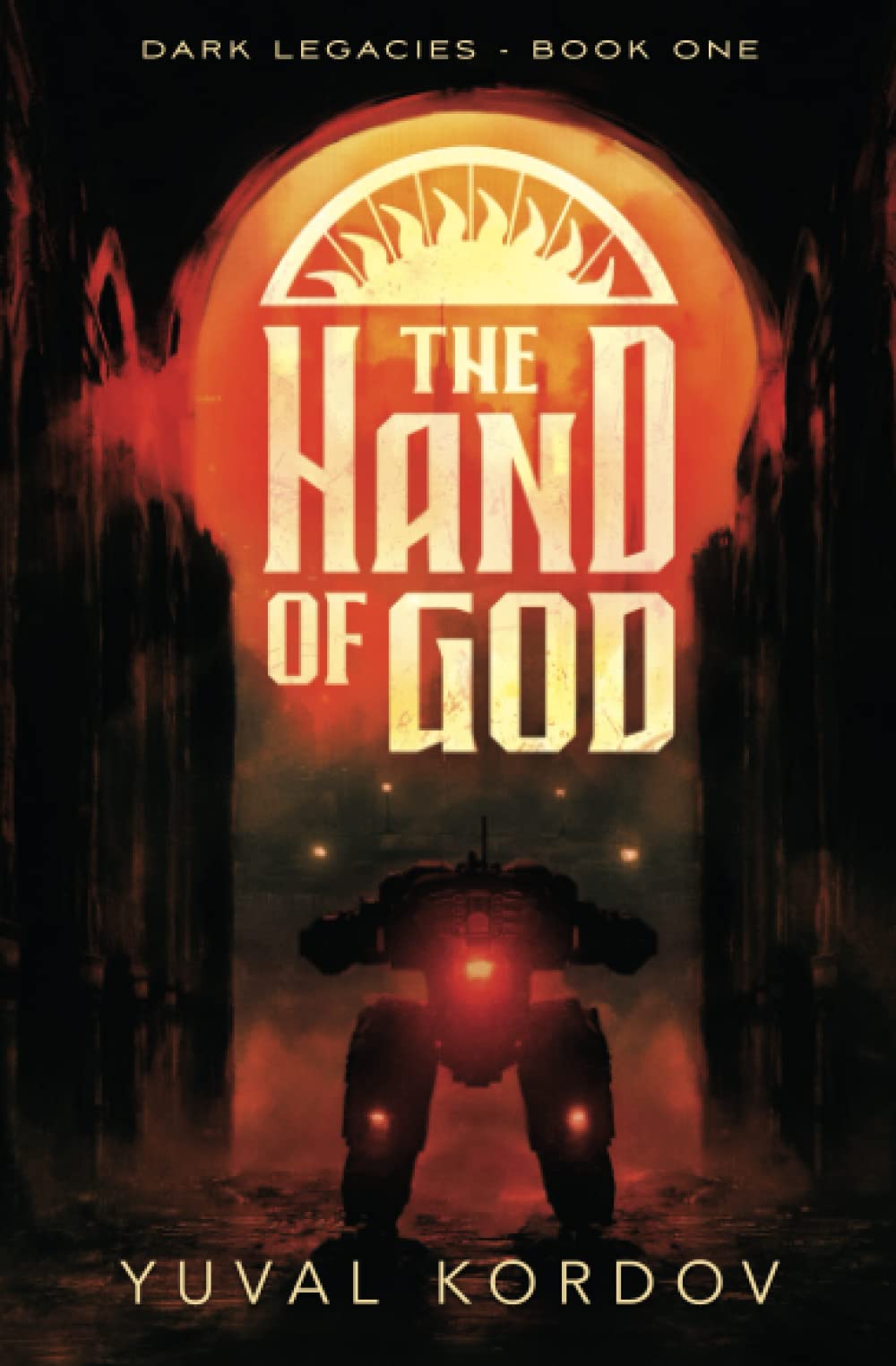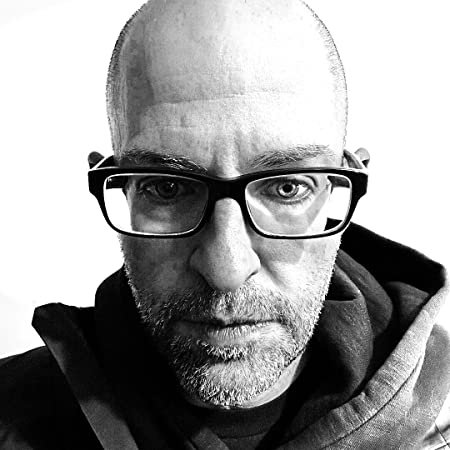The Hand of God (Dark Legacies #1), by Yuval Kordov
18 Mar 2023The Book

Synopsis:
For fans of Dan Simmons’ Hyperion Cantos, Iain Banks’ Culture novels, A Canticle for Leibowitz and other classic metaphysical science fiction.
This compelling new series explores questions of family, faith, and the human condition on the backdrop of a dark post-apocalyptic future.
The world ended—twice. Once at humanity’s hand and a second time at God’s, according to legend. Only Esther, the Eternal One, saw it all happen. Chosen by the Messiah to redeem humanity, she heads a holy sisterhood that rules Cathedral, the Last City. Except Cathedral isn’t the last city, and the source of the Revenant Sisterhood’s supernatural power is far from holy.
It’s the year 2500, give or take. The passage of time has become as blurry as the gray wastes that cover most of North America. No moon or stars light the night, and demonic hordes smash against the last outposts of civilization.
Two reborn nations vie for humanity’s future. In the west, Cathedral unleashes its God-engines—ancient walking war machines—in a final bid to cleanse the earth. In the east, the struggling city-state of Bastion turns to the last living AI for salvation. Between them, a tribe of technological scavengers known as the Union unwittingly holds the balance of power.
Hell is on the horizon. Who will survive?
My Review
The Hand of God is the first novel by Yuval Kordov, and the initial installment in a new post-apocalyptic sci-fi series, Dark Legacies. And honestly, I'm really glad of picking it, because it has so many elements and vibes that I love; the world pulls you out of your comfort zone, with elements that draw you to Evangelion, Warhammer 40k, DOOM, or STALKER.
World has ended, but not once, but two times. One by the hand of man, in a nuclear war; a second by God, literally unleashing hell of Earth. We get to live the chaos of those days through the eyes of Esther, a young girl that is living with her family; and that after the catastrophe will survive and fight for it, will be chosen by the Messiah to redeem humanity.
The atmosphere in this section is outstanding, doing Kordov an excellent job of transmitting the tension and desolation of the apocalyptic situation.
"Two nights later her dad bust into their room, saying the car was packed and it was time to go. Then, the sky exploded"
400 years after, humanity still survives, being part of different settlements. In this climate, Kordov weaves different stories about the difficulties those groups are experimenting, in a constant battle against hell.
In the West, the Cathedral, with Esther as the angular stone of it, is unleashing its God Engines in order to finally settle the war against demons; Sisterhood acts as a theocracy whose force is based on their mothers, warrior nuns.
In the East, the city-state of Bastion looks for secrets of ancient technology in order to break the equilibrium, and stop the eternal struggle to survive; and they might have found it, as in a scavenging expedition they gain control of what might be the last AI battle mech. However, this AI has spent the last 400 years examining Internet archives and its stability might not be ideal.
With this climate, we get multiple POVs (counted 8) in a loose timeline, that will slowly but firmly take us in a plot that excels at transmitting post-apocalyptic vibes, and that as said, by the times, it remembered me so much of how I felt while playing DOOM and STALKER. When humanity as a whole is at risk, do individual lives have any kind of value? We can appreciate an extensive labour of worldbuilding, with several original elements that honestly, I loved. From the mothers at the Sisterhood, to the soldiers of the Bastion; the scavengers of the union, or the fathers in Bastion; each one is unique.
The pacing suffers sometimes with the number of POVs that are used, and I feel on some sections it might drag a little bit; especially until we understand that the timeline is fragmented, and that not everything is happening at the same time. Said that, I feel all the build gets a great payoff, but it lefts us on a cliffhanger that only makes me want more book 2.
I only have another gripe with this book, which is mainly that sometimes the prose might feel a little bit too wordy. At some points, this is a reason why the pacing slows too much; but I have to add that this prose is the same reason Kordov creates some scenes that are extremely vivid.
Not gonna lie, even with those problems I mentioned, I loved The Hand of God. It is a great debut, and sets up a great foundation for what can be an excellent sci-fi series; and honestly, if you are a fan of Warhammer 40k, or The Stand (Stephen King), I would totally recommend you to give it a try.

